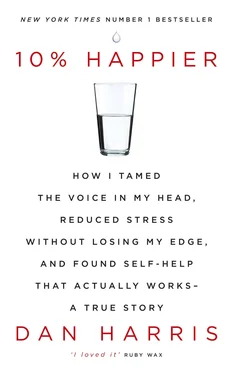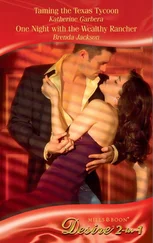I had always kind of assumed that I might not enjoy my own wedding. These events were all about the bride, I thought; the groom was just supposed to stand there, smiling. I also feared that after a lifetime of avoiding commitment, I would experience some significant last-minute jitters. As usual, my powers of prognostication were completely off. It turned out to be the best weekend of my life.
Admittedly, this was a hard place to be unhappy. We were getting married on Harbour Island, a magical spot where most people drove around in golf carts instead of cars, and where free-range chickens were given right-of-way in the streets.
The wedding was a small affair: just fifty people, our nuclear families and our closest friends. Everyone came for three days. During the day, people lounged on the beach, where the sand was literally pink, and every night we threw a party. Instead of the usual flybys that most newlyweds do on receiving lines and at guests’ tables, Bianca and I got plenty of face time with everyone.
I was also buoyed by my confidence that I was making the right decision. I couldn’t imagine marrying anyone other than Bianca. As my friend Regina had quipped, “For a person with terrible judgment, you did a great job with the most important decision of your life.”
But there was something else at work here, too. My consumption of Buddhist books was paying off. Throughout the weekend, I made a deliberate effort to pause, look around, and savor things while they lasted. There were little moments, like running errands for Bianca—for example, putting her carefully curated gift bags in people’s rooms—and actually enjoying it. Or when I babysat my adorable, big-eyed baby niece Campbell in my room while everyone else was out having lunch. She sat on my lap and cooed contentedly while I ate a cheeseburger, trying not to drip ketchup on her head.
There were big moments, too, like the ceremony itself, where I watched Bianca walk down the aisle and wondered how I’d gotten so lucky.
As soon as I got back home from the honeymoon, though, my penchant for worry reasserted itself—provoked by a conundrum at work that I simply could not figure out how to handle in a Buddhist way.
One Friday evening, I looked up at the TV in my office and saw David Muir anchoring World News —the weekday version, the Big Show. He was doing a fantastic job, which threw me into a Triple Lindy of “comparing mind,” “monkey mind,” and prapañca . Muir is kicking ass right now. I’m going down.
I was feeling bad—and then, on top of that, feeling bad about feeling bad. I liked the guy, after all. This incident again crystallized all of my nagging questions about Buddhism. Doesn’t competitiveness serve a useful purpose? Is the “price of security” simply incompatible with the “wisdom of insecurity”?
It was time for me to play my trump card. Despite the fact that more than 50 percent of Americans tell pollsters they don’t trust the media, generally speaking, people return our calls. I found Mark Epstein’s office number and left him a message saying I was a reporter and also a fan. I asked if he’d be willing to meet up, and he called me back right away to say he was game.
So, about a week later, roughly eight months after I’d first discovered Eckhart Tolle, I took a cab downtown for my man-date with the Buddhist shrink at the Tribeca Grand, just a few blocks from his office—the same chichi hotel where I’d stayed in the days after 9/11.
It was an oddly cool spot for two guys meeting to discuss Eastern spirituality. When I arrived, Epstein was already at the bar, located in the atrium, with seven floors looming overhead. He’d aged a bit since the picture on the back of his books, but I still recognized him, and he still looked considerably younger than his fifty-five years. His hair, which he wore combed back, was graying, but his hairline was robustly intact. (I notice these things.) He was about my height and lean, wearing a slightly oversized blazer with a T-shirt underneath. He greeted me warmly, with a voice that had a soft quality to it, perhaps the product of decades in a confined space, discussing people’s most private and painful issues.
After the preliminaries—the ordering of beers, my annoying habit of telling anyone who has a medical degree about the educational pedigrees of my wife and parents—we got down to business.
Conditioned as I was by my time with the self-help gurus, I started by asking Epstein flat out whether his life had been radically and grandly transformed by his embrace of Buddhism. For a nanosecond he looked at me like I was crazy, but then he caught himself. He didn’t quite laugh at me; he was too polite for that. Instead, he explained that he, like everyone else, got sad, angry, obsessive, you name it—the entire range of emotions, negative and positive.
“Are you always able to stay in the moment?”
“Eh, I try to remain aware of my surroundings,” he said, but he admitted he didn’t always succeed.
I pushed him on some of the Buddhist metaphysics. “Do you believe in reincarnation?” I asked.
“It’s nice,” he said, shrugging his shoulders. This was not a dogmatic individual.
It hit me that what I had on my hands here was a previously undiscovered species: a normal human being. Epstein, it appeared to me, was the anti-Tolle, the anti-Chopra. Not a guru in the popular sense of the word, just a regular guy with whom I was having a drink on a Friday night.
We started to talk about his background. He, too, had grown up in the Boston area. His dad was also a doctor. He didn’t have some fancy backstory, à la Tolle or Chopra. No sudden, late-night spiritual awakening, no hearing of voices. He’d discovered Buddhism after signing up for an Introduction to World Religion course during his freshman year in college because a girl he liked was also in the class. His fling with the girl didn’t last (although he did end up dating her roommate), but he did develop an immediate and abiding interest in the dharma, which resonated with him after a lifelong struggle with feelings of emptiness and unreality, and questions about whether he really mattered.
I explained to him that I was drawn to Buddhism for the exact opposite reasons. Perhaps unsurprisingly for a man who appeared on television for a living, the question of whether I mattered had never occurred to me. I did not struggle, as Mark did, with feelings of being empty or unreal. “On the contrary,” I said, only half-jokingly, “I feel all too real. I still kinda have a residual suspicion from childhood that the whole world is laid out for my benefit and nothing happens out of my line of sight. Does that place me at a disadvantage in terms of being a Buddhist?”
He thought this was hilarious. “Absolutely not,” he said, laughing. “Your personality and mine are really different. When I’m thinking about it, it’s from a much more introverted place. You’re talking from an extroverted place. There’s an energy there, an enthusiasm there, a rambunctiousness there.” Buddhism, he said, could be helpful for both personality types.
I asked what a beginner should do to get deeper into this world. I didn’t want to be a Buddhist, per se; I just wanted to better manage my ego. He told me how, after that initial religion class at Harvard, he had fallen in with a bunch of young people who were also interested in Eastern spirituality. Many of these people had gone on to become influential teachers and writers, who’d helped popularize the dharma in America. He suggested I read some of their books, and he started ticking off names. As I madly typed notes into my BlackBerry for future reference, it was impossible not to notice that nearly all of these names were Jewish: Goldstein, Goleman, Kornfield, Salzberg. “This is a whole subculture,” he said. The little cabal even had a nickname: the “Jew-Bus.”
Читать дальше












